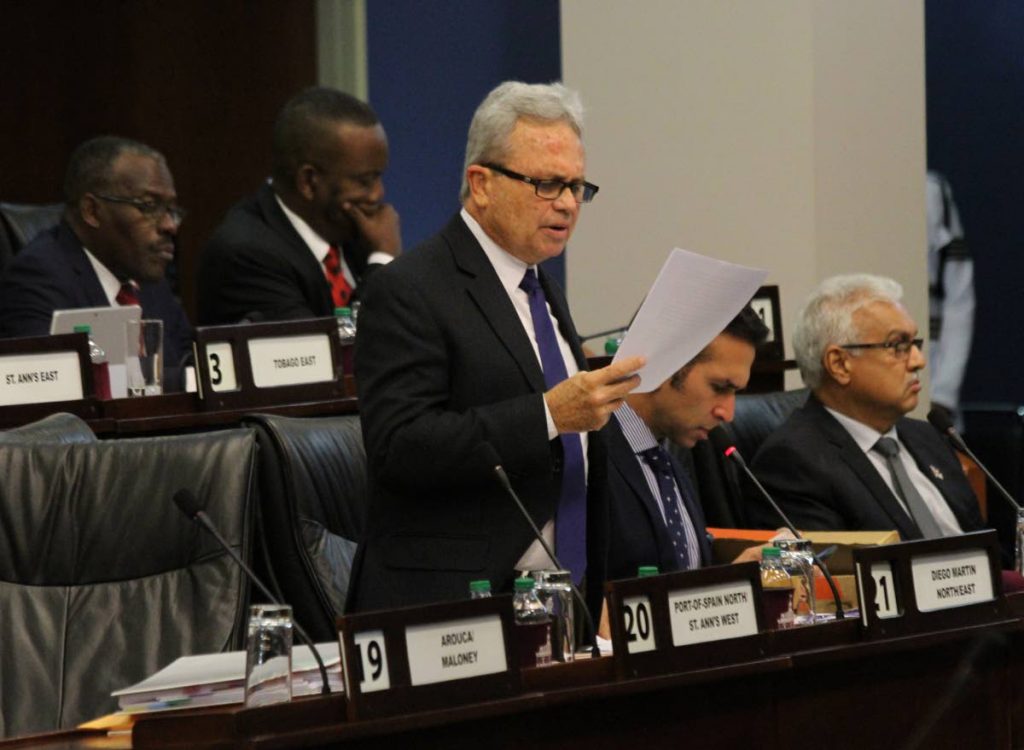Imbert defends TT forex regime

Finance Minister Colm Imbert continued his staunch defence of the country’s exchange rate, insisting that, since the dollar was floated in 1993, TT is in a better position regarding reserves.
Citing the Central Bank’s records, Imbert told reporters during a press conference at the ministry yesterday that the country’s net reserves are US$7.5 billion or 8 months’ import cover, well beyond the international standard.
In 1993, net reserves were just about US$200 million, he said, and, with the boom in oil and gas prices in the early 2000’s, peaked in 2007 at US$13.7 billion. Regardless, TT has been able to defend its exchange rate for the last 26 years and will continue to do so beyond the next decade.
Imbert acknowledged that reserves have been in decline but said that had abated because of increased inflows of foreign currency from royalties and the supplemental petroleum tax, which kicks in when oil prices go over US$50 a barrel. Over the last quarter or so, he said, foreign reserves had increased, so even though he expected some depletion of reserves this year as the country defends the foreign exchange rate – which he estimated to be about US$350 million a year over the next ten years – the rate of depletion has gone down significantly, boosted by, among other things, increased natural gas production.
He said the latest natural gas figures were very encouraging. In 2017, the average was 3.3 billion standard cubic feet per day (bcf). In 2018, it was 3.6 bcf. In 2019, January production averaged 3.64 bcf and February, 3.96 bcf.
“This is very significant because this is the driver of the economy.”
Asked to explain his logic, especially since the country’s economy had also evolved over time, Imbert said reserves now are six times what they were in 2000 but GDP is only three times and, therefore, the demand for forex, when compared to the reserve position and GDP, is more. “We were in a far worse position then than we are now.”
The Government is also ready to start spending, especially in productive sectors. “We’ve managed a really tight ship for the last three and a half years. Very few people can cut expenditure by 20 per cent without the economy going into crisis. Now that we’ve seen positive growth and the economy has turned around and is growing I think it’s time now to focus on the productive sectors,” he said.
Among the sectors he’s looking to develop are infrastructure, including roads and highways, construction and VAT refunds. These projects will be financed through debt and income, he said, and the country’s metrics are “pretty good.”
“Now that we’ve reached the point where we’ve stabilised the economy, we can start to deal with the things that will put cash into people’s hands, money into businesses and will continue the economic momentum in the country.”

Comments
"Imbert defends TT forex regime"